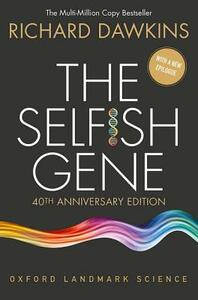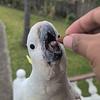You need to sign in or sign up before continuing.
Take a photo of a barcode or cover
informative
slow-paced
informative
slow-paced
informative
informative
slow-paced
Dry, but very interesting. Great research and data.
challenging
informative
inspiring
slow-paced
One of the first deeply scientific books I have really enjoyed.
challenging
informative
slow-paced
very good book, i may not agree with the authors views on other things but this book was interesting in how the psyche works.
An excellent book on the mechanisms behind evolution, can be read without problems from uninitiated in biology.
Allow me the "atheistic paradox":
There is one God: Dawkins, and Darwin is his prophet...
Allow me the "atheistic paradox":
There is one God: Dawkins, and Darwin is his prophet...
informative
inspiring
slow-paced






